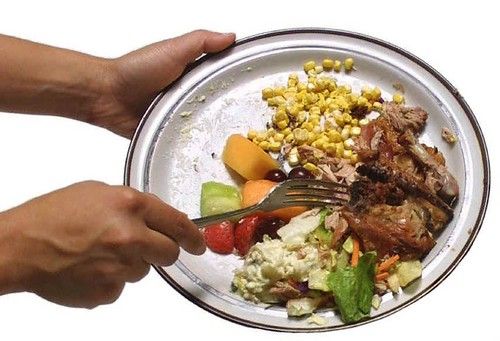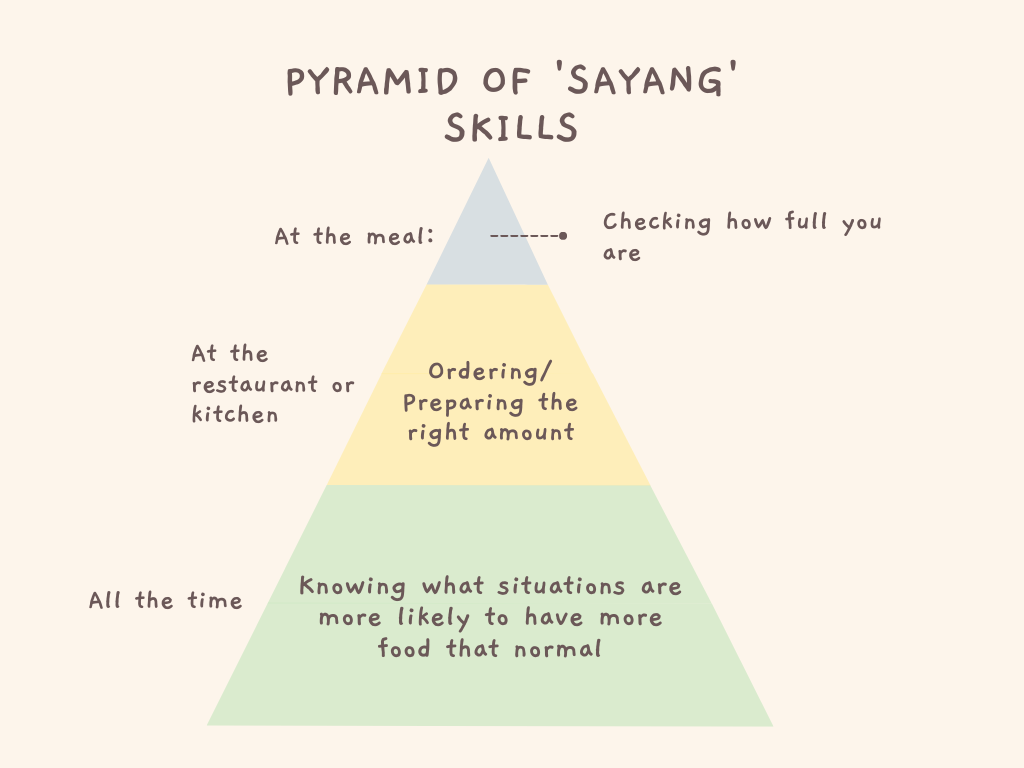How 'Sayang' thinking is breaking your diet, and what to do about it
In a world where resources are scarce, and many have to scrounge just to survive, there is a moral imperative to make sure we don't eat or act wastefully. The solution is not to become insensitive to 'sayang' and just accept that things will go to waste no matter what.

Ano ba ang 'sayang'?
When it comes to food, there's a lot!
If I don't finish my food – sayang
If there's a good deal on FoodPanda – sayang
If I have a chance to eat something yummy – sayang
This just happened to me recently.
We were eating at a restaurant, and we ordered just right for our group. When it was time to pay the bill, the waiter said,
"Sir, if you just add 600 pesos, you'll reach ₱2,500 – and then you'll get 50% off on your bill. More food, makakatipid pa kayo. Sayang din yan."
'Sayang nga'
So what did we do? We ordered some more – and ended up feeling really, really full.
It's No Surprise that 'Sayang' can Wreck your Habits
I'm sure you can easily imagine a whole number of different scenarios.
Whether it's finishing your food on the plate, or getting a good deal on meals, 'sayang' thinking can disrupt your diet very easily.
From the client I've worked with, about 70% of people run into this problem at some point during their health journey.
In fact, I'm very susceptible to this myself!
I can't stand seeing food wasted, and so I'll finish everything on the table, especially if we're eating out at a restaurant (and I know they'll just throw it all away).
The Psychology of 'Sayang'
I want to be careful to not frame 'sayang' thinking as a bad thing.
In a world where resources are scarce, and many have to scrounge just to survive, there is a moral imperative to make sure we don't eat or act wastefully. The solution is not to become insensitive to 'sayang' and just accept that things will go to waste no matter what.
We still want to be sensitive
We still want to be thoughtful
So we don't want to waste the food that's available to us today.
But we still want to balance 'sayang' mentality with our own health goals.
After all, 'sayang' din kung magkakasakit lang tayo. And in the end we lose our health because of 'sayang.'
Sayang (and its solution) Starts at Home
Growing up, we had one big rule at the dinner table:
As a kid, I don't think I did a very good job of gauging my awareness of how much food I would eat – takaw mata as they say.
So what ended up happening was that I would force myself to finish my food, even though I was already full. Although wala namang nasasayang, what I didn't realize is that I was training myself to ignore my hunger cues – and eat more than my body needed.
This led to a disordered relationship with my meals and my hunger.
The first solution: Practice Smart Consumption
And by smart consumption, I'm talking about two things here:
Smart Consumption #1: Train your brain to know when you're full
Many of us (myself included) have gone many years ignoring our hunger and fullness cues. We just keep eating and eating, especially if it feels like food will just go to waste.
But your body will tell you when it's had enough. But you have to listen.
Practice this:
In the middle of your meal. STOP. Put down your spoon and fork.
Then ask yourself, "How full am I on a scale of 1-10?"
Give yourself a number
Then, count to 10, and pick up your spoon and fork and go on eating.
It's okay if you finish your plate because you don't want to waste food. But what's important here is that you are training your brain to check in with how hungry you are.
You are developing the food awareness to be a Smart Consumer.
Smart Consumption #2: Aim to order and get exactly what you need
This follows from Smart Consumption #1
If you are able to become aware of how much food makes you full, you become better or plating your meals so that it's just right for you.
It's a strategy that you can apply even before the meal starts.
Be a 'Smart Consumer' by knowing exactly how much you'll eat, based on your awareness of your current level of hunger
The Second Solution: Be Aware of Situations Where Things Will Go to Waste
Building up on being a smart consumer, you can take the awareness even higher and be sensitive to situations where food is likely to go to waste.
Common culprits here are:
- Family gatherings
- Eating out (and over-ordering)
- Food that's not your type
If you know a situation like this is coming up- then come up with a plan that works for you.
My favorite example here is how whenever we go out to eat as a family, I always order just an appetizer
Why?
Because I know there will be a lot of unfinished food from everyone else's dishes. And since I hate seeing food go to waste, uubusin ko lang din.
Ordering small is a win-win-win for me.
- I get to eat just right – and save my diet
- I get to try a little bit of everything
- I don't see any food go to waste
Set up 'Sayang' Systems for Yourself
It helps to think of it as a collection of skills

It's no gaurantee that you'll never waste food again. But at least you will become much more mindful and thoughtful about food, in a way that both benefits your own diet, and is not 'sayang.'